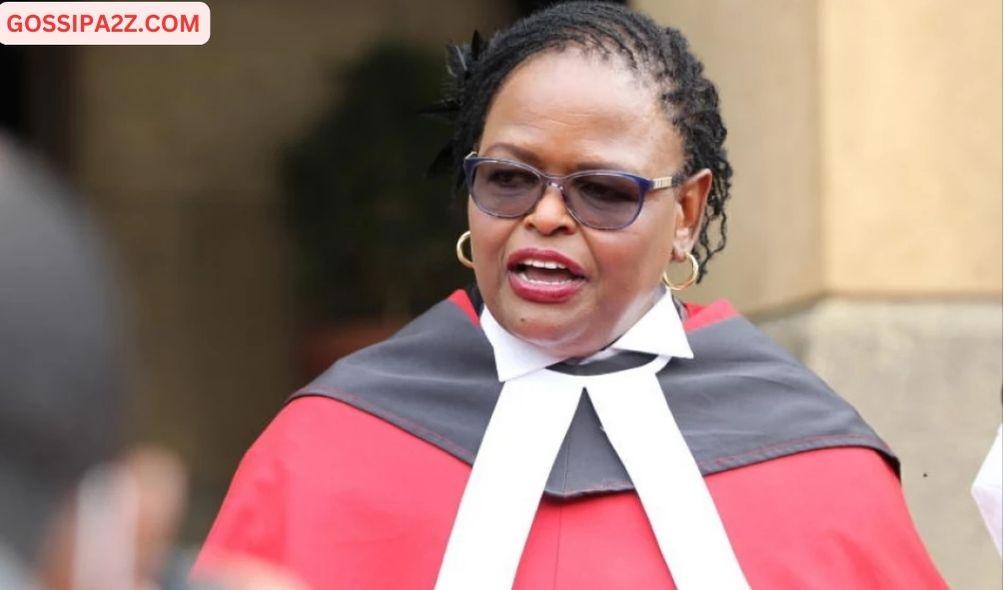CJ Koome & Other Judicial Chiefs Unite to Amend Kenya’s Constitution
On Wednesday, February 21, Chief Justice Martha Koome and the leaders of Kenya’s top courts decided to make revisions to the 2010 Promulgated Constitution to streamline court procedures.
According to the heads representing the Supreme Court, the Court of Appeal, the High Court, the Employment and Labour Relations Court, and the Environment and Land Court, amendments would address the challenges that face the Judiciary in the administration of justice.
Koome announced the changes after participating in the Heads of Courts’ consultative meeting in Naivasha, from February 18 to 21.
“Recognizing the need to review and update the Constitution of Kenya (Protection of Rights and Fundamental Freedoms) Practice and Procedure Rules 2013 to take into account contemporary developments and introduce timelines for various processes, the Hon. Chief Justice will take action to initiate the process of review to these Rules,” a communique from the Judiciary read in part.
The amendment was among the six resolutions agreed under efforts outlined to streamline court processes.
Streamlining Court Processes
Koome stated that the superior courts will give priority to sensitive cases to ensure they are concluded faster. The courts will not discriminate against the applicants in its resolution.
Kenya’s Court of Appeal will also endeavor to fast-track the hearing and determination of appeals relating to time-sensitive matters.
The heads of courts also agreed that Koome would enhance the capacity of the Constitutional and Human Rights Division and the Judicial Review Division of the High Court once new Judges are recruited.
Empowering the court falls in line with the Judiciary and Executive agreeing on the need to recruit 11 new Court of Appeal judges.
She will also rotate judges across the Judiciary to ensure judicial decisions are not personalized.
“The CJ will ensure all judges are accorded an opportunity to serve in stations and divisions that handle high numbers of public interest matters,” the heads agreed.
Active Case and Judgment Management
Under this resolution, the superior courts will enhance the docket management system to streamline case management.
They will also enforce the ‘no adjournment’ policy to guarantee efficiency and curb delays synonymous with courts.
The Court of Appeal will audit appeals where the courts granted stay orders to ensure the cases are fast-tracked. Meanwhile, the High Court will undertake a Rapid Results Initiative to prepare Records of Appeal to ensure criminal appeals at the Court of Appeal are accelerated.
Conversely, the Office of the Chief Registrar of the Judiciary (CRJ) will streamline the process of transfer of staff to cover any shortages.
The heads of courts also agreed to fight against corruption, enhance accountability, and seamless service delivery.
They also emphasized the need to uphold the Independence of the Judiciary while harnessing intergovernmental collaboration.
“The Judiciary will collaborate and work with the other arms of Government in the spirit of interdependence and reciprocity. However, the other arms of Government must respect the independence of the Judiciary.
ALSO READ:
- Inside Job Exposed: Kenyan Prison Wardens Convicted for Orchestrating Daring Terrorist Escape
- Uganda Pulls the Plug: Nationwide Internet Blackout Ordered Days Before Crucial General Election
- African Elections Under the Spotlight as Zambia Turns to Kenya Ahead of 2026 Vote
- “Two Drug Barons in Cabinet?” Kenya Government Fires Back as Ex-Deputy President Sparks Explosive Drug Claims
- Kenyan Court Freezes Use of Private Lawyers by Government, Sparks Nationwide Legal Storm
“There shall be more interaction between the Judiciary and other arms of Government to communicate the needs of the Judiciary without interfering with the independence of the Judiciary in the spirit of cooperative dialogue,” CJ Koome stated.
They further agreed to continue adopting technology to enhance performance management.
This includes the implementation of the Judiciary Data Tracking Dashboard to enable real-time monitoring of court activities and the Automated Daily Court Reporting to tackle the challenge of data integrity.
Lastly, they agreed to hold the Heads of Courts’ Consultative Meeting annually to assess any gaps and successes.
On January 22, President William Ruto and Chief Justice Martha Koome agreed to create a framework on how to tackle issues affecting the dispensing of timely justice.
CJ Koome & Other Judicial Chiefs Unite to Amend Kenya’s Constitution
